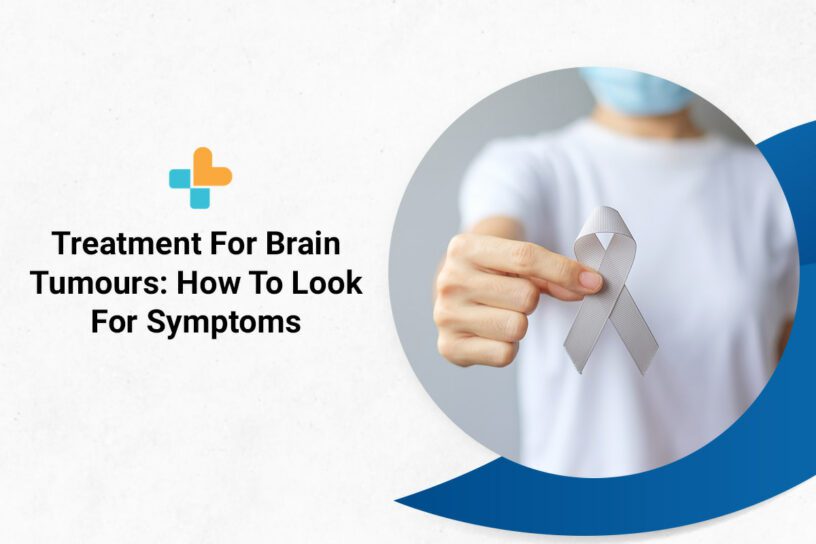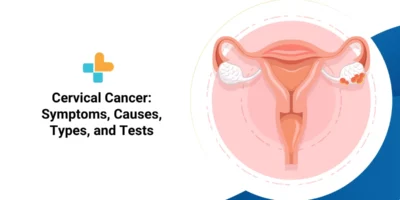The International Association of Cancer Registries (IARC) records 28,000 cases of brain tumours in India every year, out of which, there are over 24,000 fatalities. And based on our experience here at Ayu Health, most serious cases result from patients not knowing the early signs of brain tumour symptoms. Hence, treatment for brain tumours is more effective at an early stage.
After consulting the best doctors at Ayu Health — a leading medical institution based in Bangalore and present throughout India — about brain tumour symptoms, we put together this blog post.
We will discuss the symptoms of brain tumours and treatment options, including brain tumour chemotherapy.
But first, let’s start with the basics.
Introduction
What Is a Brain Tumour?
A brain tumour is an abnormal growth of cells in the brain. It’s a mass of tissue made up of cells that have grown and multiplied uncontrollably.
Brain tumours can be cancerous (malignant) or non-cancerous (benign). Malignant brain tumours can spread to other parts of the brain or spine, while benign ones don’t.
Symptoms of a brain tumour depend on its size, type, and location within the brain. Common symptoms include headaches, nausea, vomiting, seizures, confusion, changes in personality, vision problems, or other neurological deficits.
Treatment for brain tumours may involve one or more of the following:
- Surgery to remove as much of the tumour as possible;
- Radiation therapy, which uses high-energy X-rays to kill cancerous cells; or
- Chemotherapy, which involves using powerful drugs to destroy cancer cells.
What Are the Two Groups of Brain Tumours?
Brain tumours can be grouped under two categories:
- Primary: These tumours originate in the brain and usually remain there.
- Secondary: The more common group of tumours that originates in another part of the body (for example, lungs, breast, and kidney) and travels to your brain.
What Are the Different Types of Brain Tumours?
Malignant tumours are cancerous and can grow and spread quickly. Benign tumours don’t contain cancer cells; so, they tend to grow and spread more slowly.
The three most common brain tumours are astrocytomas, meningiomas, and schwannomas.
- Astrocytomas: They originate from star-shaped brain cells called astrocytes that support nerve cell function.
- Meningiomas: They come from the membranes surrounding the brain and spinal cord, known as meninges, and are the most common primary brain tumours.
- Schwannomas: They develop from Schwann cells which make up the protective covering of nerves in the body known as myelin sheaths. In most cases, they are benign, meaning they are not cancerous. They can, however, become cancerous in rare cases.
What Are the Possible Causes of Brain Tumours?
It’s unknown what causes primary brain tumours, but DNA changes in normal cells are thought to trigger them. Some of the contributing factors are age, ethnicity, family history, and exposure to electromagnetic fields.
Diagnosis and Treatment Options
Brain tumours cause a variety of different symptoms, depending on their size and location. If you experience the following symptoms or any other unexpected changes to your health or well-being, it’s important to speak to your doctor for further investigation.
What Are the Symptoms of a Brain Tumour?
The symptoms can be classified into two categories:
- Most Common Symptoms: Frequent headaches, seizures, difficulty with balance and coordination, increased fatigue or drowsiness, changes in speech or memory capabilities, vision problems, nausea and vomiting, and cognitive changes.
- Additional Symptoms: Hearing loss, changes in mood or behaviour, difficulty with urination, weakness or numbness in the arm or leg, decreased sensation in certain areas of the body, memory loss, or behaviour changes.
Your doctor will likely order imaging scans such as an MRI to look for signs of a brain tumour. Depending on the size and location of the tumour, they may also refer you to a specialist for further testing or treatment.
How Are Brain Tumours Graded?
Each type of brain tumour is classified according to its grade based on how quickly it’s likely to grow and spread. Treatment plans vary based on the type, grade, and location of a patient’s particular brain tumour.
- Grade 1: Low-grade tumours; they tend to grow slowly. High chances of survival.
- Grade 2: Intermediate-grade tumours; they can spread to nearby tissues and recur.
What Are the Various Treatment Options Available?
A doctor will likely perform tests such as CT scans or MRI scans to investigate your symptoms further and obtain an accurate diagnosis. Your doctor might also refer you to a specialist, such as a neurologist or an oncologist, for further diagnosis and treatment options.
Options include surgery, radiation therapy, chemotherapy, and targeted drug therapy. Each type of treatment has its benefits and drawbacks, and working with a qualified medical team is essential to finding the right balance for you:
- Surgery: This procedure is used to remove a tumour, but there are some risks associated with it.
- Radiation Therapy: Uses high-energy X-rays or other particles to kill cancer cells and shrink tumours.
- Chemotherapy: Uses drugs to destroy cancer cells.
- Targeted Drug Therapy: A newer form of treatment that seeks to identify specific biomarkers in tumours so that drugs can directly target them.
What Are the Side Effects of Various Treatments?
Here are the side effects of various treatments for brain tumours:
- Surgery: Side effects vary depending on the type and location of an operation. Possible side effects might include pain, infection, or bleeding at the site of surgery. Additionally, anaesthesia can cause nausea, vomiting, sore throat, and headaches.
- Radiation Therapy: Radiation therapy can cause fatigue, skin irritation, nausea, and diarrhoea. Sometimes radiation therapy leads to hair loss in the treated area. It can also cause changes to the taste of certain foods or beverages as a result of damage caused to the salivary glands while receiving treatment.
- Chemotherapy: Common side effects include fatigue; infections due to a weakened immune system; hair loss; mouth sores; nausea and vomiting; and anaemia. Certain chemotherapies are known for causing unusual sensations such as tingling in fingers or toes (peripheral neuropathy).
- Targeted Drug Therapy: These therapies can produce several side effects, such as skin rashes, abdominal discomfort, nausea and vomiting. Some drugs used for cancer treatments may cause mental confusion, muscle weakness, or high blood pressure.
Brain Tumour Chemotherapy
What Is Chemotherapy?
Chemotherapy is a type of cancer treatment that uses drugs to destroy cancer cells. The medication may be given in tablet or liquid form through an IV (intravenous) line. It may be taken as a single drug or in combination with other drugs.
- Depending on the type and stage of the cancer being treated, chemotherapy can be administered in different ways: intravenously, orally, topically, or intra-arterially.
- Some types of chemotherapies are given on an outpatient basis at a hospital or clinic; other treatments require patients to stay in the hospital for several days until the drug’s effects have worn off.
- Chemotherapy typically takes place over several months and may be combined with radiation therapy or surgery, depending on the severity of the cancer. During chemotherapy, patients are monitored closely to ensure they remain physically healthy, and their quality of life is maintained as much as possible.
Why Is Chemotherapy Recommended for Certain Brain Tumours?
Chemotherapy may be recommended for certain brain tumours when surgery or radiation isn’t possible due to the location of the tumour or because it has spread to other areas of the body.
- It can be used in combination with surgery and/or radiation therapy, depending on the stage and size of the tumour.
- It can also help control symptoms caused by the tumour, such as headaches or seizures, even if it cannot completely eliminate it.
While chemotherapy can reduce tumour size and extend survival time, there’s no guarantee that it’ll cure cancer. However, it can still offer meaningful benefits to those living with brain tumours by helping to slow down the tumour’s progression or improve the patient’s quality of life.
What Are the Different Types of Chemotherapy?
Chemotherapy is an anticancer treatment that uses drugs to destroy cancer cells. Depending on the type and stage of cancer, different types of chemotherapy may be given. The common types of chemotherapy are listed below:
- Targeted therapy: Uses drugs to target a specific gene or protein in cancer cells.
- Hormonal therapy: Stops hormones from contributing to the growth of certain cancer cells.
- Immunotherapy: Boosts the body’s own immune system to fight cancer.
- Combination therapy: Involves two or more drugs used together for greater impact.
- Adjuvant chemotherapy: Used after surgery or radiation to prevent a recurrence.
- Neoadjuvant chemotherapy: Given before surgery to shrink tumours.
- Plant-based compounds called cytotoxins: They attack cell structure or inhibit essential processes necessary for cell survival. These agents can also be combined with other treatments, such as radiation therapy or surgery, as part of a comprehensive treatment plan.
Why Treatment for Brain Tumours Should Be Done Quickly
Brain tumours are a serious medical condition that can be both physically and mentally debilitating. It is, therefore, of utmost importance to take prompt action if you experience any symptoms that could indicate a brain tumour.
If you have any worrying symptoms that don’t seem to go away, it is essential to seek medical advice as soon as possible. Early detection is key to successful treatment and can help with better outcomes for the patient.
In Bangalore, you can visit Ayu Health’s NABH-accredited diagnostic centres at multiple locations across the city. They perform over 1,000 cancer procedures annually and provide affordable health care to the general public. Visit their website or call +91 636-6100-800 today to book an appointment or learn more.
Our Hospital Locations
Oncology Surgery Hospitals in Bangalore | Oncology Surgery Hospitals in Jaipur | Oncology Surgery Hospitals in NCR | Oncology Surgery Hospitals in Hyderabad
Our Doctors
Oncology Surgery Doctors in Bangalore | Oncology Surgery Doctors in Jaipur | Oncology Surgery Doctors in NCR | Oncology Surgery Doctors in Hyderabad
About the Author

Dr. Shivakumar Uppala
Dr. Shivakumar Uppala is renowned as one of the best Cancer Specialist Doctors in the country, has performed more than 500 surgeries till now, and is an experienced surgical oncologist as well as a consultant. He is practicing at Ayu Health, Bangalore. He is a specialist in Surgical Oncology and MS - General Surgery Laparoscopic Surgeon.




